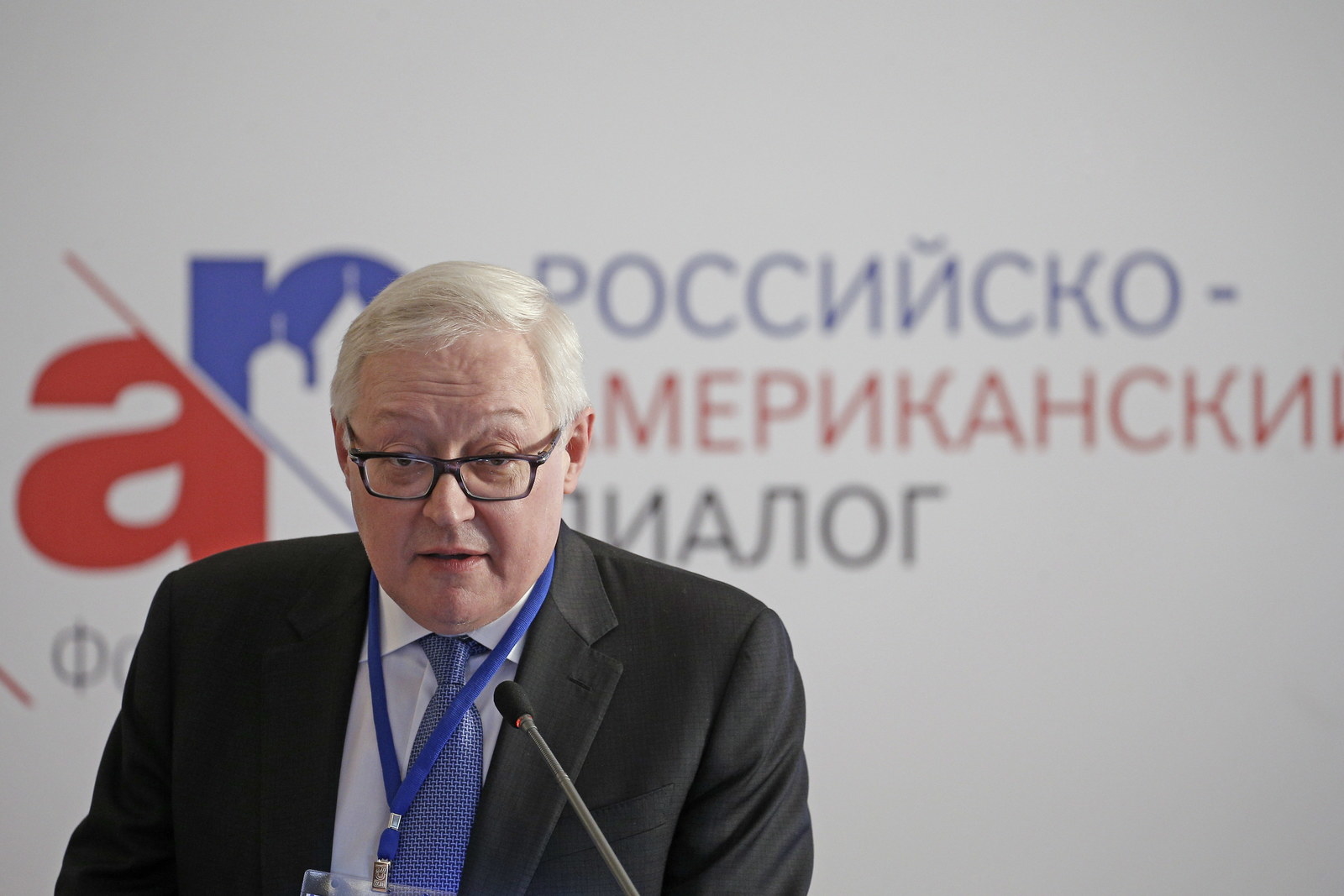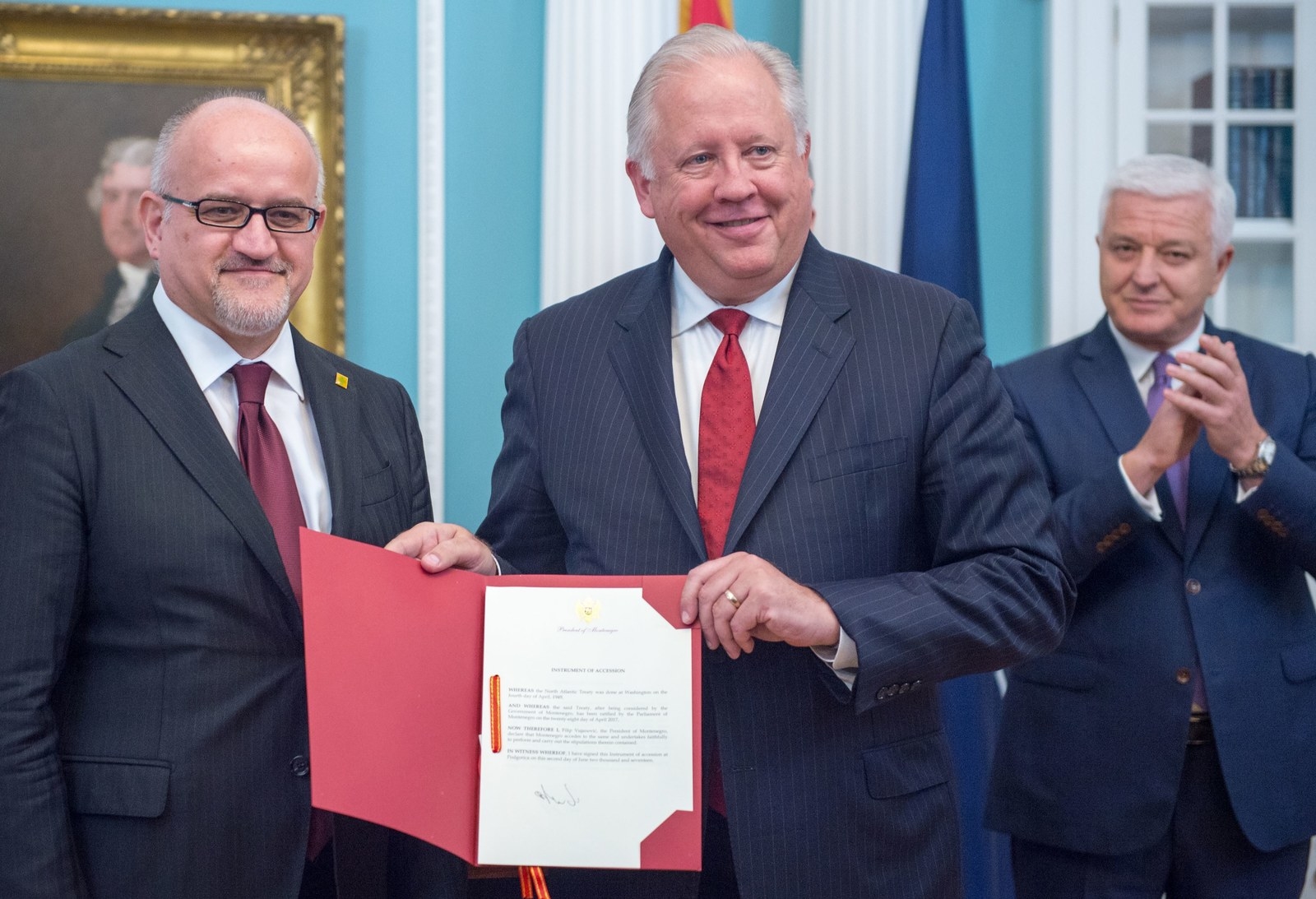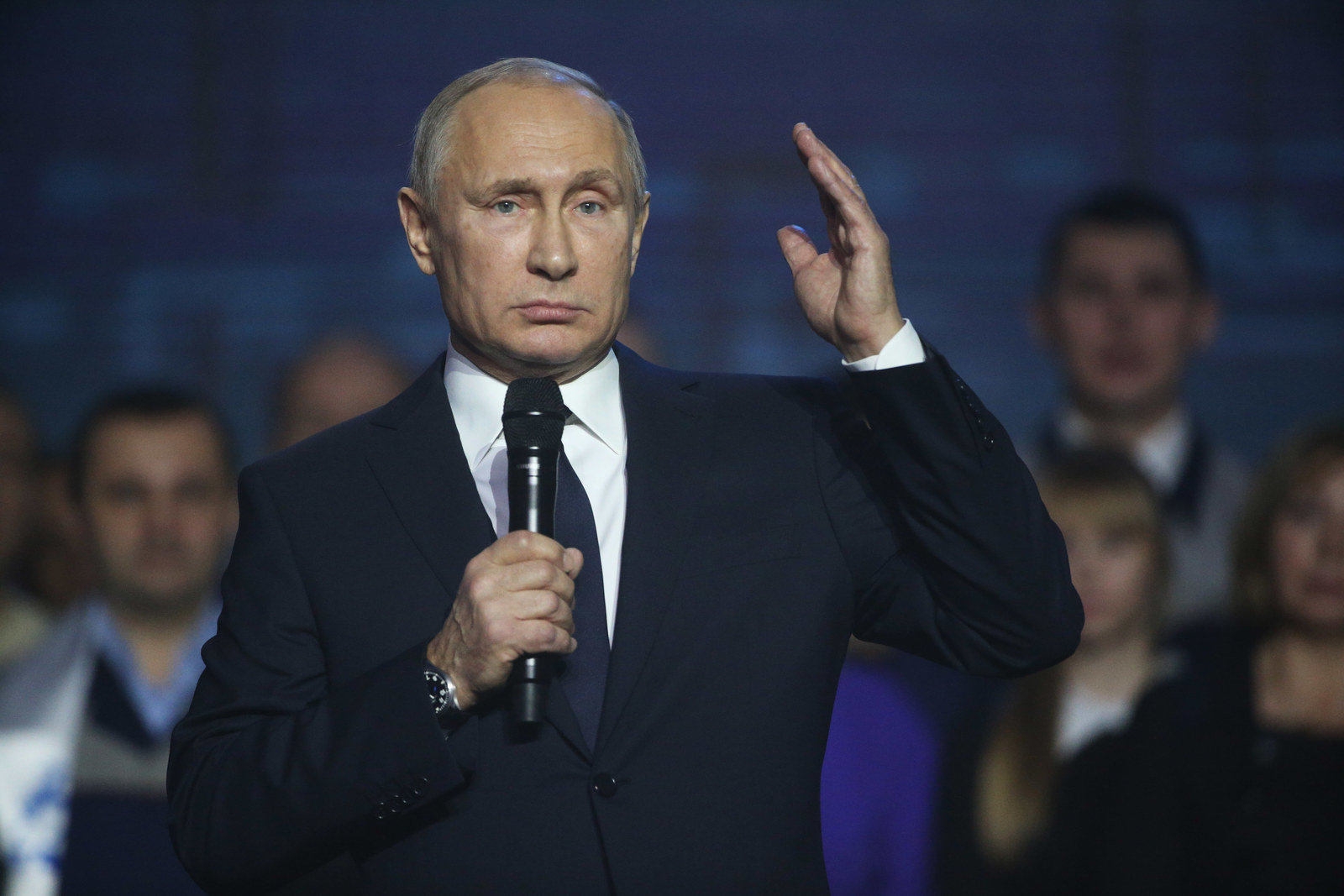The Trump administration has rejected a sweeping Russian proposal seeking a mutual ban on foreign political interference, three senior US administration officials tell BuzzFeed News.
Russia first broached the subject in July, when one of Vladimir Putin’s top diplomats arrived in Washington with a sheet of proposals aimed at addressing a top concern of the US government: A resurgence of Russian meddling in the 2018 elections.
At the time, the midterms were 16 months away, but Washington had only just begun to understand the extent of Russia’s alleged involvement in the 2016 election, including the widespread use of troll accounts to disseminate inflammatory messages, and efforts to probe US voter registration databases in 21 states. The consensus among cybersecurity experts was that the US was ill-prepared to defend against another concerted effort by Moscow to influence US elections.
The Russians were also feeling insecure. Putin, who has long feared US-backed regime change efforts, faces reelection in March. And although he is universally favored to win another six-year term, the former KGB officer is eager to avoid the type of mass protests that followed Russia’s disputed legislative elections in 2011, a defiant uprising he continues to attribute to US interference.
“We said ‘thank you very much but now is not the time for this’”
To test the possibility of a mutual agreement, Putin dispatched Deputy Foreign Minister Sergei Ryabkov to Washington for a July 17 meeting with Under Secretary Tom Shannon, the No. 3 official at the State Department. The official US account of the meeting offered only a bland summary of conversations on “areas of mutual concern.” But three US administration officials, including one inside the meeting, said Ryabkov handed over a document containing a bold proposal: A sweeping noninterference agreement between Moscow and Washington that would prohibit both governments from meddling in the other’s domestic politics.
After examining the proposal, which has not previously been reported, US officials told Moscow there would be no deal.
“We said ‘thank you very much but now is not the time for this,’” said a senior State Department official who spoke on condition of anonymity to discuss sensitive diplomatic discussions.

The decision to walk away from the offer could prove fateful. Signs of Russian meddling in foreign elections continue to flourish, with allegations of new Russian influence operations in Spain and other Western democracies. Of particular concern to election security experts is the US intelligence community’s January 2017 assessment that Kremlin-directed meddling in the US will only grow more sophisticated.
“We assess Moscow will apply lessons learned from its campaign aimed at the U.S. presidential election to future influence efforts in the United States,” concluded the January report.
The US official described the Russian proposal in historic terms, likening it to the 1933 accord between President Franklin Roosevelt and Soviet Commissar for Foreign Affairs Maxim Litvinov that ended 16 years of American nonrecognition of the Soviet Union in exchange for a pledge not to interfere in US politics.
Ryabkov proposed “that we come to terms and agree not to interfere in each other’s internal affairs,” said the senior US official. “Historically, it relates back to the agreements that were done at the beginning of Franklin Roosevelt’s administration when we were establishing a relationship with the Soviet Union for the very first time,” said the senior official.
But the offer to open up talks with Moscow posed a dilemma for the Trump administration.
At the time of the July proposal, the White House had just backtracked on a plan to coordinate with Russia on a cybersecurity unit following a GOP backlash, Congress was days away from passing a Russia sanctions bill in defiance of the president, and Special Counsel Robert Mueller’s investigation was just heating up. Career US diplomats also raised concerns about how the US could ensure Russian compliance in the noninterference agreement under discussion.
When asked if the president weighed in on the proposal, a spokesman for the National Security Council said only that the White House and State Department “coordinated closely on the United States’ response.” The spokesman was quick to point out that deliberations over the noninterference agreement never advanced to the stage of formal bilateral negotiations.
In recent weeks, the president’s top aides have tried to insulate him from the ballooning Russia scandal, and last month the White House nixed a formal bilateral meeting with Putin on the sidelines of an economic summit in Vietnam.
The Russian Embassy in Washington declined to comment on the proposal or any discussions it held with the Trump administration.

From the perspective of two senior US officials involved with the Russia portfolio, the decision to reject Ryabkov’s offer reflected a warranted lack of faith in Moscow and a difficult political environment in Washington.
“There’s a lot of confidence-building that has to be done before that,” said the US official. “And nobody saw an agreement of noninterference as being anything that was going to constrain the Russians in their behavior especially in cyberspace.”
A second senior State Department official said any potential gains would come at too high a cost. “We would have to give up democracy promotion in Russia, which we’re not willing to do,” said the official.
“Ultimately, Russia is unlikely to exercise self-restraint absent some form of an agreement,”
But some analysts say the absence of a common understanding between Moscow and Washington leaves the US vulnerable to another destabilizing cyber offensive during the 2018 midterms. Refusing to at least explore a deal, they contend, would be a lost opportunity.
“Ultimately, Russia is unlikely to exercise self-restraint absent some form of an agreement,” said Samuel Charap, a former State Department official and Russia expert at the RAND Corporation. “The only other tools we have are to harden our own defenses or threaten a major retaliation, two options that won’t likely be sufficient.”
The lack of policy options available to safeguard US elections has prompted a flurry of scholarship in recent months on the merits of a deal with Russia.
The debate underscores the paradox of America’s modern security posture: While the US controls the most sophisticated offensive cyberweapons in the world, its reliance on digital networks makes it uniquely vulnerable to foreign hacking.
Jack Goldsmith, a former Bush administration official who supports negotiating a deal with Russia, thinks simply enhancing defensive and security measures is unlikely to protect future US elections.
“Offense has too great an advantage over defense,” he wrote in a January article in Lawfare. “We have too many soft targets and are constantly surprised when new ones are attacked or exploited.”
Goldsmith also doubted Washington’s ability to deter future Russian attacks with credible threats of retaliation. “The United States’ significant digital dependencies mean that it loses in escalation in cyber,” he wrote.
“That leaves cutting a deal,” he concluded.
Advocates of a deal point to President Barack Obama’s 2015 accord with China aimed at reducing commercial cyber espionage as an instructive case study.
“While Obama was criticized at the time for what looked to some like capitulation, experts now agree that the deal had at least some positive benefit,” said Kimberly Marten, the director of Columbia University’s program on US-Russia relations. Martin cited a 2016 report by the network-security firm FireEye finding that Chinese hackers had carried out fewer attacks on US targets.
She also said Putin’s paranoia about US meddling in Russia’s upcoming election could produce serious negotiations with Moscow. Putin “will almost certainly win another six-year term, unless the United States disrupts things by, say, releasing a cache of compromising material that turns the Russian population against him,” she wrote in a recent article. “To avoid that possibility, Putin might just find an anti-doxing agreement to be useful.”
Due to the secretive nature of Ryabkov’s proposal, the current public debate about a potential deal has been purely theoretical. A key obstacle to forging any agreement in the real world would likely involve defining foreign interference.

Russia, for instance, views America’s support for civil society and democracy promotion as a flagrant violation of its sovereignty. Specific programs such as the State Department’s “Internet Freedom” initiative, which provides technical support for citizens living in authoritarian regimes to organize and circumvent censorship, is a particular fixation for Moscow. When asked if Russia would seek to ban such activities under a new agreement, the senior US official said, “I assume they would if we were to go down that path.”
“But again, we’re not prepared to do that,” the official added.
He emphasized that the US does not view these programs as “manipulative” or threatening. “We see them as enhancing existing desires by civil society to organize themselves and play a role in their own society.”
The view that democracy promotion is central to American foreign policy and therefore non-negotiable is taken as an article of faith across broad segments of the US foreign policy establishment. Proponents of this view see few upsides to entertaining Ryabkov’s offer.
“I don’t think Russia’s offer is workable,” said Adam Segal, a cyberspace policy expert at the Council on Foreign Relations. “I don’t know how you would enforce it, and the political costs to the US would be too high.”
Segal said fundamental differences between how the US and Russia view freedom of expression and individual rights would render any hopes for an agreement fanciful. “The US doesn’t want to get into the world where we are censoring the US press for things we view as investigative journalism but the Russians see as interference,” he said.
Deal proponents, such as Goldsmith, argue that the threat posed by Russia is grave enough to warrant a compromise. “The only hope to gain relief from these devastating cyber actions — or, at a minimum, a hope worth exploring — is to give our adversaries relief from our cyber actions that they perceive to be devastating,” he said.
When asked how the administration planned to safeguard the 2018 midterms in absence of an agreement, the spokesman said, “We are not going to comment on potential security issues.”
In response to the same question, a Department of Homeland Security spokesman said his agency “works continuously with state and local officials, who are responsible for managing the nation’s elections and have already taken a number of steps to improve their cybersecurity.”
Those steps may prove sufficient in safeguarding the integrity of the next election — or they may not. But in just four months, America’s due diligence will be tested as the first ballots are cast in midterm primaries in Texas and Illinois. ●

